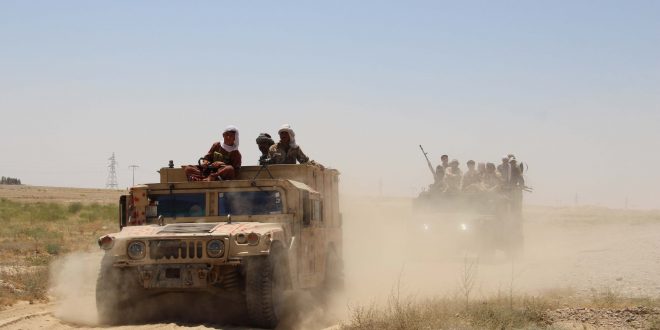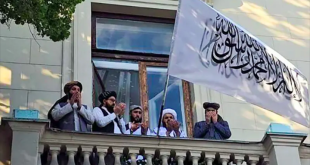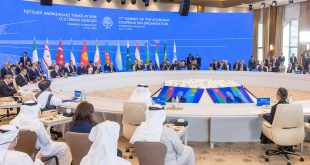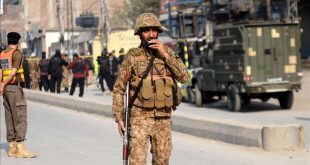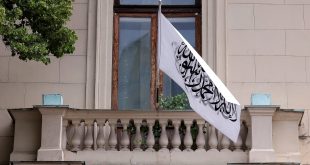By Dr. Matin Royeen
Introduction: Conflicts have been part of human life since the dawn of our existence. Conflict simply means the presence of incompatible ideas, belief systems and disagreement within a person, between individuals and nations that if not addressed (managed/ resolved), could lead to bloodshed and human suffering. There are many examples of major conflicts that have resulted in millions of deaths, enormous destruction and unimaginable human suffering. Sadly, over the past 42 years, my beautiful country of birth has been full of political strife and ethnic transgressions that have resulted in violence, death and destruction. Despite considerable progress in the past 19 years, different forms of direct violence, structural and cultural violence are still haunting the nation. The recent conflict arising from the outcome of the 2019 presidential elections between Drs. Ghani and Abdullah have added another dangerous dimension in the Afghan life.
Philosophers such as Rousseau, Hobbes, Locke, Kant, Socrates and Plato have discussed the state of human nature with dichotomous views of good and bad, moral and immoral and virtuous and evil. The great Mahatma Gandhi was a strong believer in the goodness of human nature by stating, “Man can reach his higher status among living beings and move away from the brutish nature to human nature by self-restraint.”
The debate in psychology about our biologic/genetic predispositions (nature) versus the influence of our environment and our experiences on our thinking/belief system that guide our actions (nurture) can also help us understand the “bi-polarity” of our existence in this world. Our culture, political orientation and humane belief systems could liberate us towards respect for diversity, humanism and harmonious living, or it could further imprison us in the cage of bigotry, power and greed. Political leaders can benefit a great deal from the Gandhi’s philosophy of restraint by exercising understanding, empathy and humility, especially during difficult times.
The current political impasse between Dr. Abdullah and Dr. Ghani: The root of this conflict relates to the outcome of the 2019 presidential elections, which was allegedly marred by fraud and cheating. Both sides claimed to be the winner in this race. After months of debate and back and forth discussions surrounding the fraudulent votes, Ms. Nooristani, the head of the Afghan Independent Commission declared Dr. Ghani as the winner, causing a great deal of anger and dissonance among Dr. Abdullah’s supporters. As a result of this conflict, both leaders claimed to be the president after two separate inaugurations. Negotiations and mediation efforts by some key Afghan leaders have not produced any positive results yet. There is a great deal of apprehension and disappointment among the public who are dealing with many challenges such as violence, unemployment and poverty. Additionally, the outbreak of the Coronavirus pandemic has taken a big toll on human life and has crippled the global economy, unprecedented in the last 100 years. This virus is having/ will have a profound negative impact on health and livelihood of the vulnerable populations around the world, including Afghanistan.
It would be helpful to discuss the two leaders’ backgrounds and the important issues involved in this political conflict.
- Drs. Ghani and Abdullah have come from two different backgrounds. Dr. Ghani has finished his undergraduate and graduate studies outside of Afghanistan. He has worked in academia and with the international organizations in the United States. After completing his medical degree and working in the field for some time, Dr. Abdullah became involved during the jihad against the former Soviet occupation and worked very closely with the Afghan national hero, the late Ahmad Shah Masood.
- Despite their diverse backgrounds, both Drs. Abdullah and Ghani have extensive experiences in the Afghan political system, working in various important capacities including cabinet levels.
- After the dispute of 2014 presidential elections between the two leaders, a unity government was formed with mediation of John Kerry, the United States Secretary of State at that time. Unfortunately, the unity government concept did not function very effectively in practice. This experience has left some hard feelings between the two leaders with different personality traits. Further, the continuation of the problems in the unity government between the two leaders and their followers have created issues of mistrust and lack of confidence which are essential ingredients of any successful conflict resolution efforts. This political impasse over the results of 2019 presidential elections needs immediate successful intervention. The Afghan leadership is facing some critical issues of war and peace, dealing with the crippling health/financial issues of the Coronavirus pandemic and healing the wounds of a divided nation.
Movement towards a successful conflict resolution: Political conflict occurs when there are difficulties in reconciling different interests or disagreements over goals and objectives with possible negative impact on relationships and behaviors of the actors and their followers. The mediation efforts of Mr. Sayaaf, Mr. Karzai, Mr. Khallili and Mr. Qanooni is very important in keeping the flow of communication open between Dr. Ghani and Dr. Abdullah.
Kenneth Thomas and Ralph Kilmann have developed five conflict resolution strategies that could be useful in the Afghan context.
- Avoidance of conflict: When the parties ignore and withdraw from the conflict. In this case nothing is resolved.
- Competition is used by individuals in the conflict to win and is marked by lack of cooperation. This method of one side winning and others losing is not very effective in solving conflicts.
- Accommodation is another method when one party gives in to the demands of another party involved in the conflict. This strategy of appeasement may preserve the harmony but will not resolve the issues.
- Collaboration takes place when both parties to the conflict are actively participating in creating a shared solution that can be supported by everyone.
- Compromising is a strategy in conflict resolution where everyone gives up something and no one gets everything. This method may be a fair way of satisfying everybody.
Afghanistan is presently at a very critical historic juncture. The outbreak of the Coronavirus pandemic, the peace discussions with the Taliban, the intra-Afghan dialogue, the political future of the country and all socio-economic problems are overwhelming for any leaders to tackle at once. This requires a collective commitment/action by all for the best interest of the nation. The great Gandhi had stated “There is enough in this world to meet everybody’s need, but not enough to meet a single’s man’s greed.” It is time to end personal political greed in favor of the public need.
Dr. Matin Royeen is an Afghan American educator. He can be reached at [email protected]
 Afghanistan Times
Afghanistan Times
